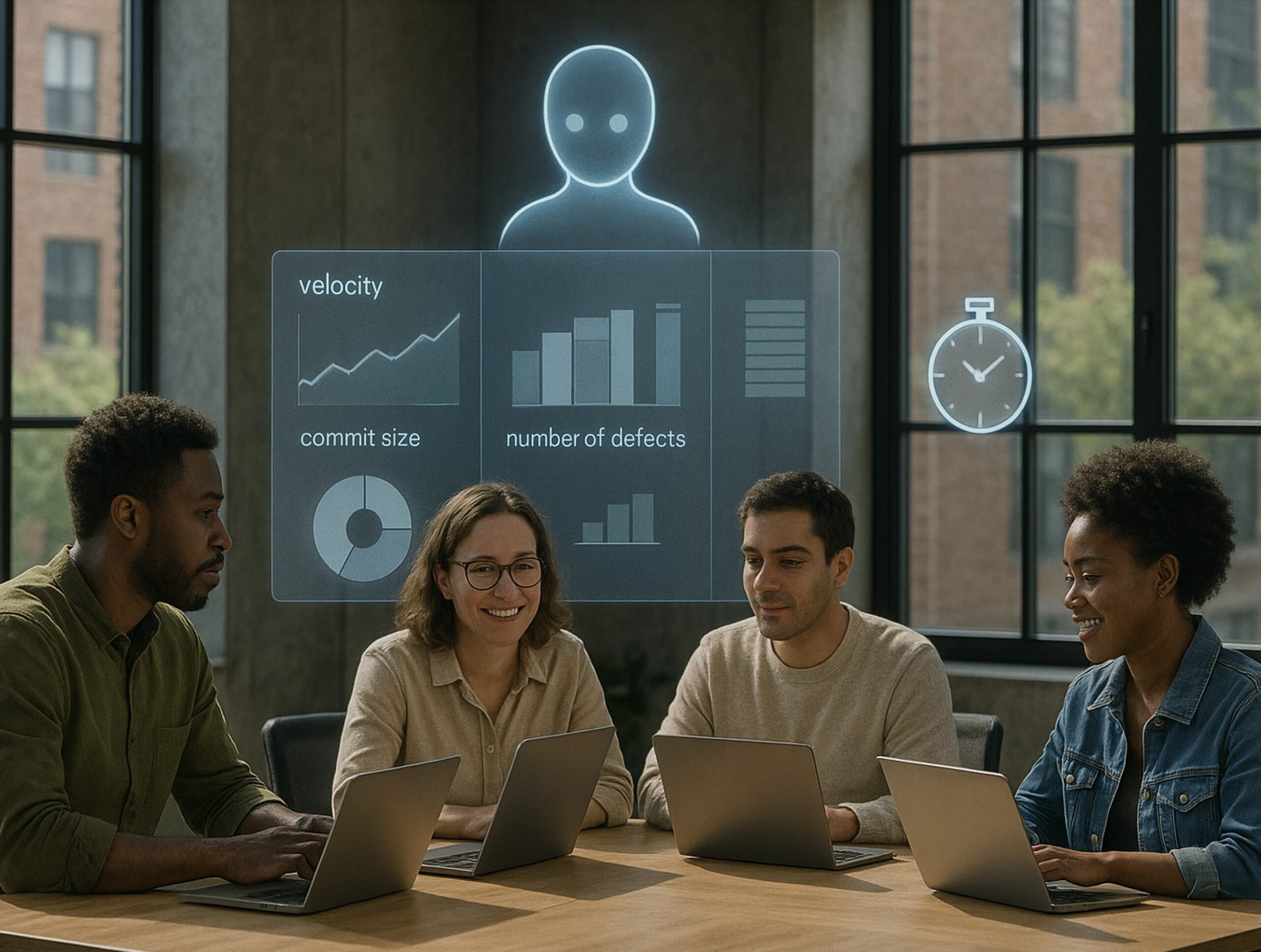Everybody is building AI agents nowadays. The future of work seems to be Humans und AI working together in teams. Probably it’s a natural human tendency - we create in our own image. But while we are trying to understand the workforce of tomorrow, I'm increasingly convinced that framing artificial intelligence as "teammates" misses an important point.
My leadership mission has always been straightforward: help people build better products while making work less miserable. Throughout my career, I've observed how easily our work environments can become disconnected from what makes us fundamentally human. Companies need innovation, people crave meaningful contribution yet work often feels hollow. Addressing this problem was a fundamental concern of the agile movement.
Today AI transforms our professional landscape. Undoubtedly it boosts agility through faster feedback loops and smaller teams of AI-augmented professionals. Yet it might put the human-centric view on work that is at the core of the agile mindset at risk. So should we strive for human-like coworkers, or should AI be envisioned as something uniquely complementary to human nature? Do we really want to go for lunch with AI teammates?
Replace or Enhance
In a recent article, Jurgen Appelo outlined his vision for "After Agile"—a world where AI assistants become interoperable tools and teammates, speaking a new "language" of protocols, semantics, negotiation, and auditability. He envisions systems to manage relationships, operations, and negotiations between people and autonomous agents.
Every power user of AI-tools will agree that Jurgen's call to invent new protocols for human-agent collaboration is compelling. Today, we are massively limited by our ability to work with AI, and the answer to this is certainly not Prompt Engineering. But I wonder if we're asking the right question here. Instead of "how do we make AI more like human colleagues?" perhaps we should ask: "how do we leverage AI to enhance what makes us uniquely human?"
The Trap of Human-like AI
Many companies are racing to build AI personal assistants—digital entities designed to simulate human collaboration. The underlying assumption is that these agents should become increasingly human-like, eventually functioning as "real" coworkers.
This approach seems futuristic yet intuitive, but I believe it omits fundamental aspects of both human psychology and our relationship with technology. To chart an alternative course, we need to recognize and harness three uniquely human superpowers: tool-use, collaboration and adaptation.
Human Superpower #1: Tools
An evolutionary advantage as human beings is our unparalleled capacity to incorporate tools as extensions of ourselves. From hand-axes to smartphones, human brains literally rewire themselves to treat tools as body extensions.
Think of the bicycle as metaphor. For a professional cyclist, bike and body exist in perfect symbiosis - every muscle firing, every gear shift intuitive. There's no conscious translation between intent and execution. More importantly, this mastery brings profound joy. The harder the climb, the greater the thrill at reaching the summit.
AI agents can serve as next-generation tools. They can eliminate repetitive tasks, but their true potential lies in becoming "cognitive prosthetics" that amplify our curiosity, creativity, and problem-solving stamina. Try using deep research to fact-check an idea, without days of market research. Our own ability to think critically is a scarce resource that now can be extended by AI.
Human Superpower #2: Collaboration
Our second superpower is genuine human connection. When we collaborate effectively, our brains release oxytocin and serotonin—creating that unmistakable "warm glow" of working together. Shared purpose and trust spark creativity and well-being in ways no algorithm can replicate. While AI can automate drudgery, it cannot trigger a genuine spark of trust or spontaneous insight born from human connection.
Our brains evolved sophisticated capabilities to distinguish friend from foe through micro-expressions, vocal tones, and body language. Our ability in detecting subtle human cues means AI will always fall short of real human interaction. These detection systems operate below conscious awareness, making it impossible for AI to fully satisfy our need for genuine human connection.
It’s not even their fault - even if the technology will become almost indistinguishable from Humans, we will still know that it’s not like us. Thus, treating agents as full teammates can hollow out genuine community and connectedness, potentially increasing workplace loneliness. We might achieve reach higher levels of productivity, but at the price of misery.
Human Superpower #3: Adaptation
Rather than forcing AI into human-like roles, I propose a different approach that builds on a third superpower: our ability to adapt. Across history, humans have continuously reshaped how we live and work in response to new technologies - whether inventing agriculture, building cities, or navigating the digital age. Each shift brought up new tools and new ways of collaborating, organizing, and thinking.
In this vision, agents serve as augmenters, not replacements. They accelerate outcomes and expand our cognitive and creative bandwidth. But human teams remain central. We design workflows where AI boosts our performance while we retain both the joy of mastering tools and the warmth of collaboration.
Of course, we still need more effective ways to work with AI, and I fully agree with Jurgen’s call for a language that goes beyond prompting. AI augmentation will have tremendous impact on human ability to perform and succeed. This can transform work from tedious to thrilling and bring joy to teams. But the emotional aspects of work, the setbacks, the breakthroughs, the thrill of succeeding together, will always be uniquely human.
The future of work isn't about building better artificial colleagues. It's about creating systems where technology amplifies what makes us most human: our ability to extend ourselves through tools and connect deeply with one another. As leaders, our challenge isn't teaching machines to be more human. It's designing environments where technology helps humans be more fully themselves: creative, connected, and engaged in meaningful work.



